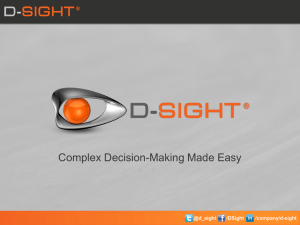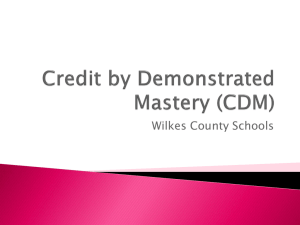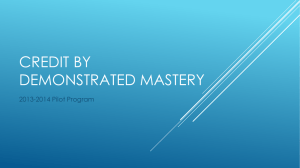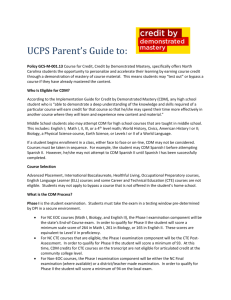CDM: Long-term Considerations
advertisement
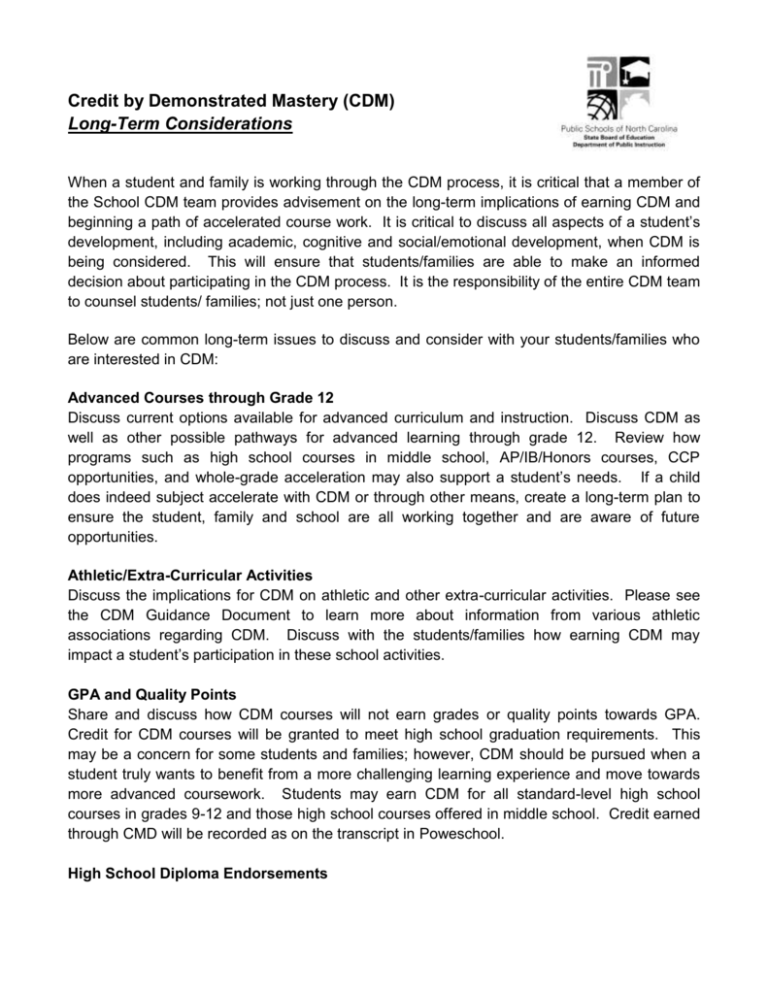
Credit by Demonstrated Mastery (CDM) Long-Term Considerations When a student and family is working through the CDM process, it is critical that a member of the School CDM team provides advisement on the long-term implications of earning CDM and beginning a path of accelerated course work. It is critical to discuss all aspects of a student’s development, including academic, cognitive and social/emotional development, when CDM is being considered. This will ensure that students/families are able to make an informed decision about participating in the CDM process. It is the responsibility of the entire CDM team to counsel students/ families; not just one person. Below are common long-term issues to discuss and consider with your students/families who are interested in CDM: Advanced Courses through Grade 12 Discuss current options available for advanced curriculum and instruction. Discuss CDM as well as other possible pathways for advanced learning through grade 12. Review how programs such as high school courses in middle school, AP/IB/Honors courses, CCP opportunities, and whole-grade acceleration may also support a student’s needs. If a child does indeed subject accelerate with CDM or through other means, create a long-term plan to ensure the student, family and school are all working together and are aware of future opportunities. Athletic/Extra-Curricular Activities Discuss the implications for CDM on athletic and other extra-curricular activities. Please see the CDM Guidance Document to learn more about information from various athletic associations regarding CDM. Discuss with the students/families how earning CDM may impact a student’s participation in these school activities. GPA and Quality Points Share and discuss how CDM courses will not earn grades or quality points towards GPA. Credit for CDM courses will be granted to meet high school graduation requirements. This may be a concern for some students and families; however, CDM should be pursued when a student truly wants to benefit from a more challenging learning experience and move towards more advanced coursework. Students may earn CDM for all standard-level high school courses in grades 9-12 and those high school courses offered in middle school. Credit earned through CMD will be recorded as on the transcript in Poweschool. High School Diploma Endorsements Discuss the criteria for High School Diploma Endorsements (SBE, GCS-L-007), Career, College and Academic Scholars. Walk through the CDM implications for interested Diploma Endorsements to ensure appropriate coursework is completed. For example: If a student desires to work towards the NC Academic Scholars Endorsement and achieves CDM for a standard-level course instead of enrolling in an honors-level course, develop a plan to meet the criteria of the honors-level or above course criteria needed to attain the NC Academic Scholars Endorsement. Opportunity for Early Graduation Discuss the option for completing high school graduation requirements (state and local) early. Discuss post-graduation options that meet the student needs. Walk through examples of the implications on courses required for graduation and intended High School Diploma Endorsements (SBE, GCS-L-007) if a student earns CDM. CDM may help prevent some students from leaving high school to pursue other options before graduating. OTHER from Local School District Perspective Please add any further topic of discussion.
